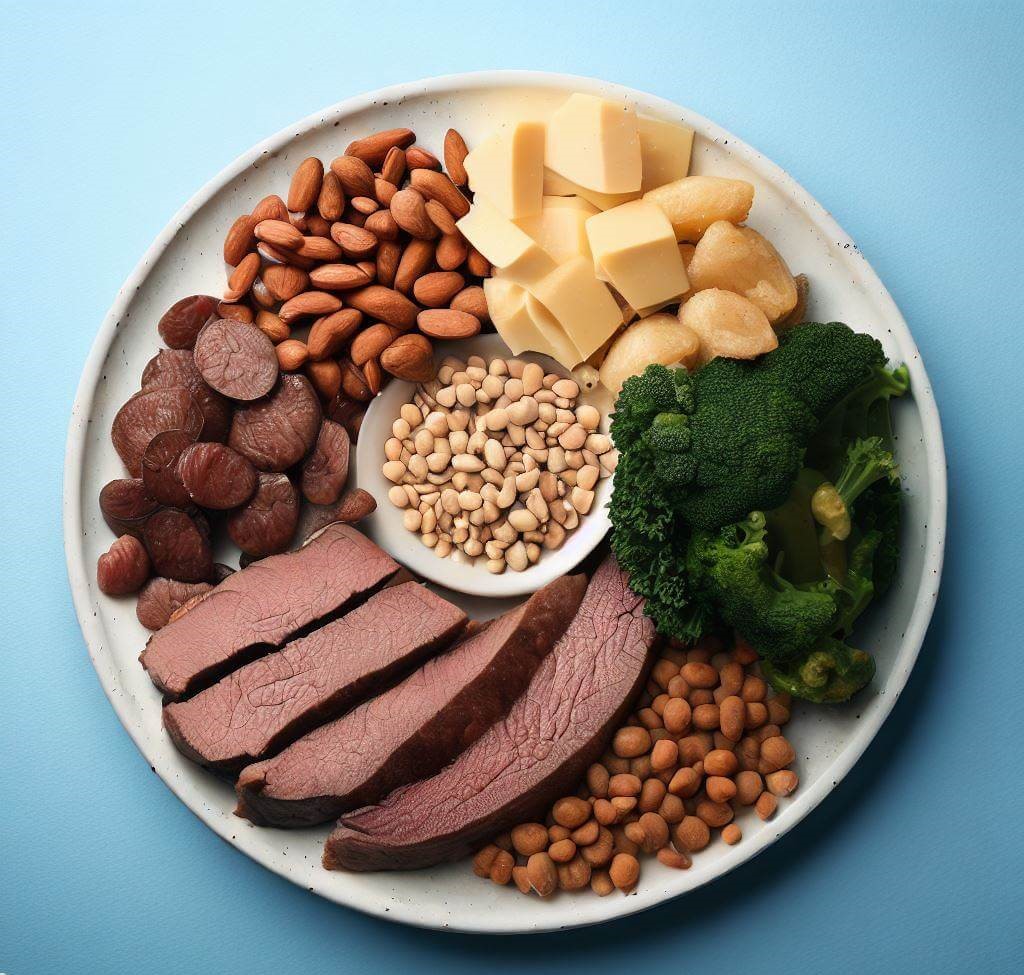Introduction: The Silent Threat of High Blood Sugar
It’s a silent menace, lurking in the background, often without loud symptoms or dramatic presentations. High blood sugar, or hyperglycemia, is like an uninvited guest that sneaks into a party, often unnoticed until it starts causing disruptions. For many, it remains an abstract medical term until they or someone they love are diagnosed with it. But why is it termed ‘silent’? And more importantly, what significance does it hold in our overall health?
But here’s the twist – the silence of high blood sugar is both its strength and its vulnerability. It’s a strength because it often goes unnoticed, but it’s a vulnerability because with awareness, knowledge, and proactive steps, we can detect and manage it. As we delve deeper into understanding the causes and effects of high blood sugar, remember that the power to conquer it begins with recognizing the silent signals. Let’s embark on this journey to unveil the mysteries behind high blood sugar and arm ourselves with the knowledge to combat it.
The Culprits Behind High Blood Sugar
High blood sugar isn’t just a number on a medical report; it’s a complex interplay of multiple factors. When we think of sugar, we often visualize candies, cookies, or those sweet desserts we occasionally indulge in. But what if I told you the causes of elevated blood sugar levels are far more intricate than just consuming sugary foods? Let’s dive in and explore the primary culprits behind high blood sugar.

Diet and Eating Habits
The Core of Our Nutritional Choices: Our diet plays a pivotal role in determining our blood sugar levels. While desserts and sugary beverages are obvious culprits, some less-obvious foods can sneakily raise blood sugar.
- Refined Carbohydrates: Think white bread, pastas, and many breakfast cereals. These are quickly digested, causing a rapid spike in blood sugar.
- Processed Foods: High in additives, preservatives, and often hidden sugars. For instance, did you know that some savory snacks or ready-to-eat meals contain sugars that can influence your blood sugar levels?
- Overeating: It’s not just what you eat, but also how much. Consuming large portions, even of healthy foods, can cause a surge in blood sugar.
A practical tip? Read labels, choose whole grains, and be mindful of portion sizes. A balanced diet, rich in fiber, protein, and good fats, can help stabilize blood sugar levels.
Stress and Mental Health
The Invisible Trigger: Ever noticed how you crave comfort foods when stressed? There’s a reason for it.
- Stress Hormones: When stressed, our bodies release hormones like cortisol. These hormones push glucose into the bloodstream, giving us an energy boost to tackle the stressful situation – a throwback to our ‘fight or flight’ days. However, in today’s world, this mechanism can backfire, leading to elevated blood sugar.
- Emotional Eating: Stress, anxiety, or even sadness can drive us towards sugary comfort foods. This emotional eating can result in temporary relief, followed by a blood sugar spike.
Remember, mental health is as crucial as physical health. Practicing relaxation techniques, seeking professional help, or simply talking to a loved one can be therapeutic.
Physical Inactivity
The Silent Lifestyle Hazard: The modern world offers countless comforts, but it also promotes a sedentary lifestyle. Sitting for extended periods, be it for work or entertainment, has significant ramifications.
- Muscle Glucose Uptake: Our muscles use glucose for energy. When we’re active, muscles use up more glucose, reducing its amount in the bloodstream.
- Insulin Sensitivity: Regular physical activity makes our body’s cells more sensitive to insulin, a hormone that helps cells use glucose for energy. A sedentary lifestyle can reduce this sensitivity, leading to an accumulation of glucose in the blood.
It’s essential to weave movement into our daily routines. Simple actions, like taking short breaks to walk around, stretching, or even opting for stairs over elevators, can make a significant difference.
In conclusion, while these factors play a considerable role, they’re just a part of the broader picture. Genetics, medications, and other health conditions also influence blood sugar. However, by understanding and addressing these core culprits, we’re taking a proactive step towards better blood sugar control. Awareness, after all, is half the battle won.
Medications and Their Side Effects
Navigating the Pharmaceutical Labyrinth: Medications are designed to alleviate symptoms, combat diseases, or provide preventive measures against potential health threats. Yet, every drug introduced into our system can have unintended consequences. For those closely monitoring their blood sugar, certain medications can indeed become double-edged swords.
- Beta-blockers: Often prescribed for heart conditions or high blood pressure, beta-blockers can mask symptoms of low blood sugar and sometimes raise blood sugar levels. It’s essential to closely monitor glucose levels when starting these medications.
- Statins: Used to lower cholesterol, some statins can increase the risk of higher blood sugar levels and even type 2 diabetes. This doesn’t mean one should skip them, but having open conversations with healthcare providers about risks is crucial.
- Diuretics: Commonly referred to as “water pills,” diuretics help eliminate sodium and water from the body. But they can also increase blood sugar by reducing its release from the kidneys.
- Antidepressants: While effective in treating depression, some antidepressants can lead to an increase in blood sugar. If you’ve been prescribed these, it’s essential to discuss potential impacts on your glucose levels.
The key takeaway? Always be vigilant. If you’ve been prescribed new medication, monitor blood sugar levels regularly. If you notice unusual spikes, it’s not a call to panic but to communicate. Collaborate with your doctor to find the balance between essential medications and maintaining optimal blood sugar.

Hormonal Fluctuations
The Biochemical Tug of War: Our body is a complex interplay of hormones, each influencing various functions. Blood sugar is no exception. Certain life stages or conditions can trigger hormonal fluctuations that, in turn, impact our glucose levels.
- Menstrual Cycle: Women may experience blood sugar swings during their menstrual cycle. The rise in progesterone and estrogen in the lead up to menstruation can influence insulin sensitivity, sometimes making it harder to manage blood sugar.
- Pregnancy: Gestational diabetes is a condition where previously non-diabetic women experience high blood sugar during pregnancy. This is primarily due to hormonal changes that make the body less sensitive to insulin.
- Thyroid Disorders: The thyroid gland, responsible for regulating metabolism through hormone production, can impact blood sugar. Both hyperthyroidism (an overactive thyroid) and hypothyroidism (an underactive thyroid) can cause issues with blood sugar control.
- Adrenal Glands: Conditions such as Cushing’s syndrome, where the adrenal glands produce excessive cortisol, can elevate blood sugar levels.
- Growth Hormone: Produced by the pituitary gland, this hormone is essential for growth. However, an excess (often due to tumors) can lead to reduced insulin sensitivity.
Understanding the intricate dance of hormones in our system can be daunting. Yet, it’s comforting to know that most hormonal imbalances can be managed, if not entirely corrected, with the right medical guidance. Regular check-ups, open conversations with healthcare providers, and staying informed are essential steps in navigating the maze of hormonal impacts on blood sugar.
The Science Behind Blood Sugar Spikes
The Ups and Downs of Glucose: At its core, our body operates like an intricate machine, with every component playing a crucial role in maintaining balance. One of these balances revolves around glucose, a primary source of energy for our body’s cells. When this balance tilts, we experience what’s commonly referred to as blood sugar spikes.
- Understanding Glycemic Index (GI): The GI measures how rapidly a food causes blood sugar to rise. Foods with high GI, like sugary drinks and white bread, cause rapid spikes in blood sugar. In contrast, low GI foods, like whole grains, release glucose slowly and steadily.
- Postprandial Hyperglycemia: A fancy term for the rise in blood sugar after eating. While a certain rise is normal as the food gets digested and converted to glucose, in some individuals, especially diabetics, this increase can be sharp and prolonged.
- Dawn Phenomenon: Some people experience a rise in blood sugar in the early hours, typically between 2 am and 8 am. This is due to the surge in growth hormone, cortisol, and other hormones during this time, making the body less sensitive to insulin.
- Somogyi Effect: A lesser-known but intriguing phenomenon where the blood sugar drops during the night, and the body responds by releasing stored glucose, causing a spike by morning.
Decoding the science behind blood sugar spikes is essential for tailored management strategies. Recognizing the patterns, triggers, and underlying causes paves the way for better control and healthier outcomes.
The Role of Insulin in Blood Sugar Control
The Gatekeeper of Glucose: To truly grasp blood sugar dynamics, one must understand insulin’s pivotal role. Produced in the pancreas, this hormone is the gatekeeper, ensuring glucose from the bloodstream enters the cells, where it’s used for energy.
- Insulin Sensitivity: This refers to how responsive your cells are to insulin. High sensitivity means smaller amounts of insulin are needed to store glucose, whereas low sensitivity (or insulin resistance) requires more insulin to achieve the same effect.
- Insulin Resistance: Over time, certain factors like obesity, physical inactivity, and genetics can make our cells less receptive to insulin. The pancreas then produces more insulin to compensate, leading to an overflow of glucose in the bloodstream – a precursor to Type 2 diabetes.
- Balancing Act: Insulin is constantly working to strike a balance. After meals, it helps store the glucose molecule in liver and muscle cells in the form of glycogen. Between meals, as blood sugar levels drop, insulin levels reduce, allowing glycogen to be converted back to glucose to keep our energy levels stable.
- External Insulin: For those with Type 1 diabetes, where the body can’t produce insulin, or in advanced stages of Type 2 diabetes where insulin production might be insufficient, external insulin (via injections or pumps) becomes essential. The goal is to mimic the body’s natural insulin response, though achieving perfect synchronization can be a challenge.
Understanding insulin is like uncovering a hidden layer in the complex narrative of blood sugar control. As we demystify its role, we’re better equipped to take proactive measures, be it through lifestyle changes, medications, or both, ensuring our body’s intricate glucose dance remains harmonious.
High Blood Sugar’s Impact on Overall Health
Diving into the realms of health and wellness, we often hear about the boogeyman that is high blood sugar. But what does it really do to our body? Why should we be concerned? Let’s delve deep into the immediate and long-term impacts of elevated blood sugar levels.
Immediate Impacts
The Feeling of Fatigue: Ever felt like you’re dragging your feet after a heavy meal? High blood sugar often results in an immediate feeling of fatigue. As the body struggles to transport the sugar from your blood to your cells, tiredness ensues.
Headaches and Brain Fog: High blood glucose levels can cause the brain to function sub-optimally. This might manifest as difficulty concentrating, memory lapses, or headaches.
Excessive Thirst and Urination: One of the body’s defense mechanisms against high blood sugar is to flush out the excess glucose through urine. This results in frequent trips to the bathroom and, subsequently, an insatiable thirst as the body tries to replenish lost fluids.
Blurred Vision: High sugar levels can cause the lenses in your eyes to swell, impacting your ability to see clearly. Though this effect is typically temporary, it underscores the importance of maintaining stable blood sugar.
Long-term Health Complications
Cardiovascular Diseases: Persistent high blood sugar levels can damage blood vessels, leading to a host of cardiovascular problems. This includes hypertension, heart disease, and an increased risk of strokes.
Neuropathy: Elevated glucose levels can damage the nerves, especially in the feet. This might start as tingling or numbness but can progress to more severe pain and insensitivity.
Kidney Damage: Our kidneys play a vital role in filtering waste from the blood. Over time, high blood sugar can damage these filters, leading to kidney disease or even kidney failure in severe cases.
Retinopathy: The eyes, especially the retinas, are sensitive to prolonged exposure to high blood sugar, which can lead to vision impairment and, in advanced stages, blindness.
Poor Wound Healing: High glucose levels can affect blood flow and cause nerve damage, leading to slower wound healing. This is particularly concerning for diabetics, as minor wounds can escalate to severe infections.
Increased Risk of Infections: Elevated blood sugar can compromise the immune system, making one more susceptible to infections, particularly yeast and fungal infections.
To paint a clearer picture, imagine your body as a well-tuned orchestra. Each section plays its part in harmony. However, the persistent high sugar levels introduce a jarring note, disrupting the rhythm over time. While the immediate effects might seem manageable, the long-term consequences can be life-altering. Hence, understanding and managing blood sugar becomes paramount for a melody of good health.
Practical Steps to Manage and Prevent High Blood Sugar
Understanding the pitfalls of high blood sugar is just half the battle; the next half is effectively managing it. The good news? With a few actionable steps, it’s possible to keep blood sugar levels in check and even prevent them from spiking in the first place.

1. Balanced Diet: The Foundation Stone
The food you eat plays a significant role in blood sugar levels. Prioritizing whole foods like lean proteins, healthy fats, and complex carbohydrates can make a difference. Additionally, limiting the intake of refined sugars, sodas, and processed foods can stave off unnecessary spikes.
2. Physical Activity: A Game-Changer
Engaging in regular physical activity not only improves cardiovascular health but also increases insulin sensitivity. This means your cells can better utilize any available sugar in the bloodstream. Whether it’s a brisk walk, yoga, or high-intensity workouts, find what you enjoy and stick to it.
3. Regular Monitoring
Keeping tabs on your blood sugar levels, especially if you are diabetic or at risk, is crucial. Regular monitoring can help identify patterns and triggers, making it easier to manage.
4. Stress Management
It’s no secret that chronic stress can wreak havoc on our health. Incorporating relaxation techniques, be it meditation, deep-breathing exercises, or journaling, can help reduce cortisol levels and, in turn, blood sugar spikes.
5. Adequate Sleep
Sleep is when the body rejuvenates. A lack of quality sleep can affect insulin sensitivity and lead to increased hunger and sugar cravings. Aiming for 7-9 hours of sleep nightly can create a positive ripple effect on overall health.
6. Medications and Consultation
If you’re on medication for diabetes or any other condition, regular consultation with a healthcare provider is vital. They can adjust doses, introduce new medications, or offer specific advice tailored to your situation.
Conclusion: Taking Charge of Your Blood Sugar Levels
The journey of understanding and managing blood sugar is a marathon, not a sprint. It involves patience, persistence, and an unwavering commitment to one’s health. But with every step taken, every meal planned, and every workout completed, you’re inching closer to a healthier, more vibrant you. After all, it’s not just about avoiding the pitfalls of high blood sugar; it’s about crafting a life of wellness, vitality, and joy.
FAQs
1. Can fruits cause high blood sugar?
While fruits contain natural sugars, they also have fiber, which can help stabilize blood sugar levels. However, it’s best to consume them in their whole form and avoid fruit juices or dried fruits in excess.
2. How quickly can blood sugar levels change?
Blood sugar can fluctuate rapidly, especially after meals. It’s typical for levels to rise post eating and then gradually come down as insulin does its job.
3. Are artificial sweeteners safe for managing blood sugar?
Many artificial sweeteners don’t raise blood sugar levels. However, reactions can vary among individuals. It’s crucial to monitor your response and consult with a healthcare professional.
4. Can drinking water lower high blood sugar?
Drinking water can help lower blood sugar levels by aiding the kidneys in flushing out excess sugar through urine.
5. How often should one monitor their blood sugar levels?
The frequency depends on individual health conditions. Those with type 1 diabetes might need to check several times a day, while those with type 2 diabetes or those at risk might need less frequent monitoring. Always consult with a healthcare provider for personalized advice.





